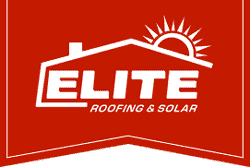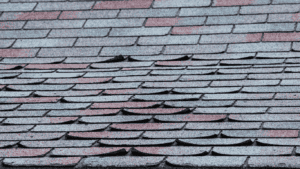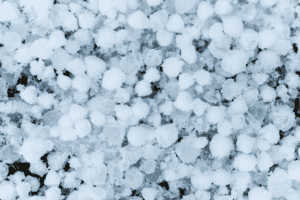With so many types of commercial roofs available, it can sometimes be difficult to decide which is right for your needs. Materials such as TPO, EPDM, metal, and built-up roofing all have their benefits and drawbacks, and differences between these types of commercial roofs can include cost, durability, and resistance to wind and leaks. How can you know you’re making the best decision for your business? At Elite Roofing, we’ve helped many business owners choose the commercial roof that suits their needs the best. So today, we’re talking about the many available types of commercial roofs as well as factors to consider in making this crucial decision.
Single-ply roofing systems
These days, many commercial buildings make use of one of several kinds of single-ply roofing systems. These roofs consist of a single layer of material that is typically installed by rolling out the material and adhering it to the roof deck using specialized glue, tape, or heat welding.
The most common types of single-ply materials used for commercial roofs include EPDM, TPO, PVC, and modified bitumen. Each varies in terms of cost, energy efficiency (largely due to the color of the material), and durability. Single-ply roofing systems can be more prone to leaks than other materials, as seams can fail and certain materials can shrink over time.
Built-up roofing
For a more classic commercial roofing system, look to built-up roofing (BUR). These roofing systems have been in use for decades, and BUR roofs are generally quite durable. BUR roofs are made up of alternating layers of material. The classic pairing is tar and gravel, but newer BUR roofs may use fiberglass, polyester, or other substances. Despite their durability and relative inexpensiveness, BUR roofs have generally fallen out of favor. Installation is time-consuming and sometimes dangerous, while the weight of this material often requires additional reinforcement to be added to the roof.
Metal commercial roofing systems
Tried and true, metal is one of the most durable types of commercial roofs available. Metal roofs are highly resistant to weather damage, whether from wind or hail, and also do a better job of keeping water out than many other systems. However, many metals used in roofing can rust, leading to damage, leaks, and potentially expensive repairs. Meanwhile, metals that don’t rust, such as copper, tend to be much more expensive. Still, the durability is largely unbeatable when compared to other commercial roofing options.
Spray foam roofing
Spray polyurethane foam (SPF) is relatively new to the commercial roofing scene. This material tends to perform well, especially in terms of providing natural insulation to the building it covers. Extensive research on this material’s lifespan is largely unavailable, however, due to how new it is. Further, installation can be tricky, as specific weather conditions are required to ensure the material sets properly.
Key factors when deciding between types of commercial roofs
So, you understand the basics of what types of materials are commonly used to construct commercial roofs. How can you begin deciding from among these options? Here are some points to consider:
- Overall cost: In making any buying decision, it’s always tempting to go with the most inexpensive option. However, a commercial roof is a long-term investment. Some materials may be more expensive up front, but the money saved by installing a durable, long-lasting roof can be enormous in the long run.
- Building usage: Warehouses, large stores, and multi-unit residential buildings all tend to use commercial roofs, but all of these buildings have very different needs. Consider what your commercial building will be used for and what attributes (such as temperature control or water resistance) are the biggest priorities for your needs.
- Weather conditions: What types of inclement weather are common in your area? The types of commercial roofs listed above can vary greatly in terms of how vulnerable they are to wind, rain, hail, and other weather conditions.
- Flexibility: It’s impossible to tell the future, but if you expect your business to expand over the next few years, that should factor into your roofing decision. You may not want to invest in an expensive yet long-lasting roof if it will need to be replaced again relatively soon.
Elite Roofing Works With Many Types of Commercial Roofs
Between the many types of commercial roofs available and the range of factors that impact your decision, choosing the right roof for you can be overwhelming. Luckily, you don’t have to make this decision on your own! Elite Roofing has repaired, replaced, and installed many high-quality commercial roofs throughout the Denver area. With this experience comes knowledge of commercial roofing that can help you weigh your options. If you’re looking to install a new roof for your commercial building, contact Elite Roofing today to tell us about your project! We’re standing by to help you make the best roofing decision for your business.









